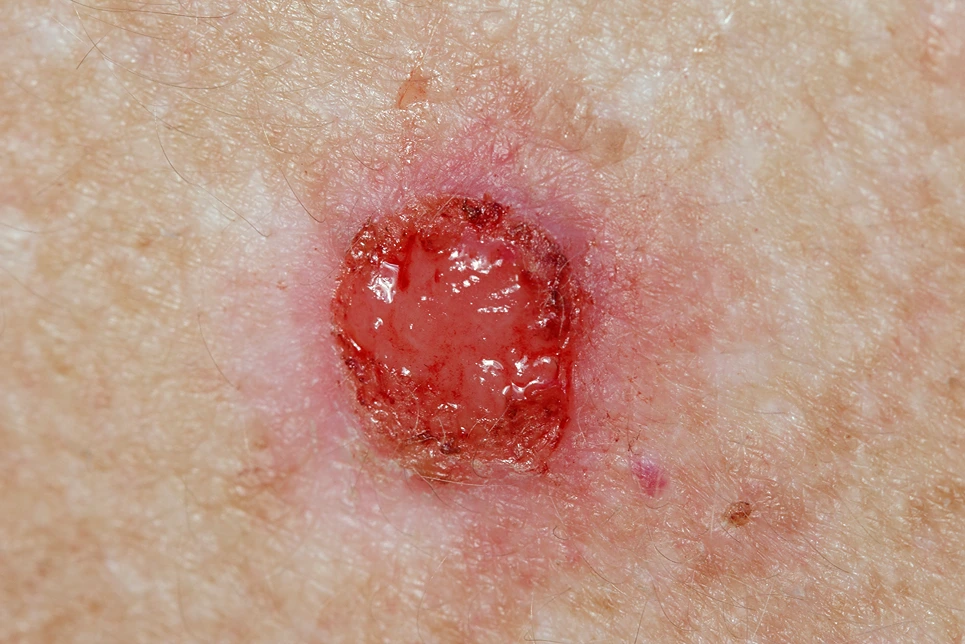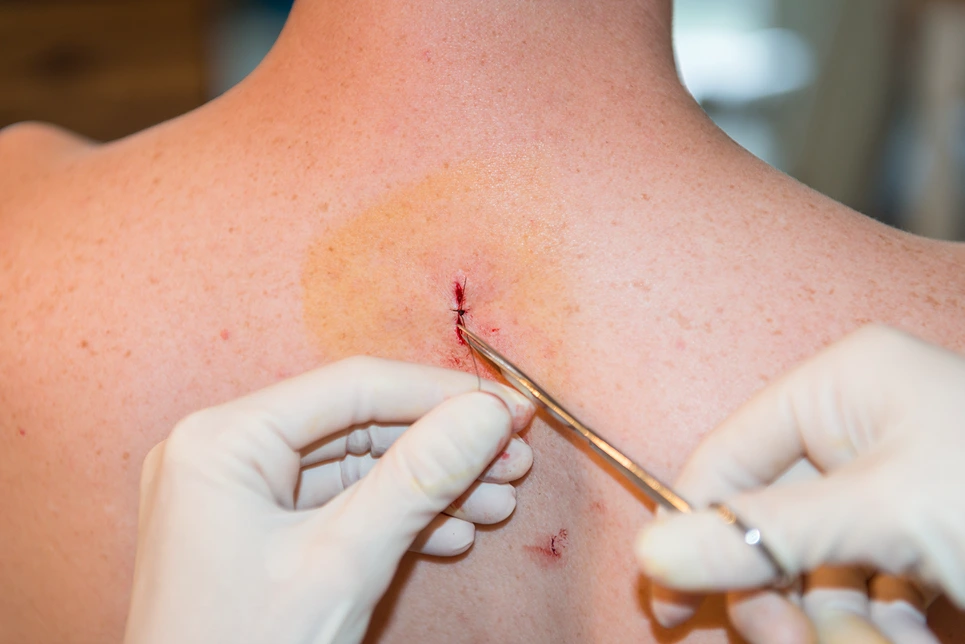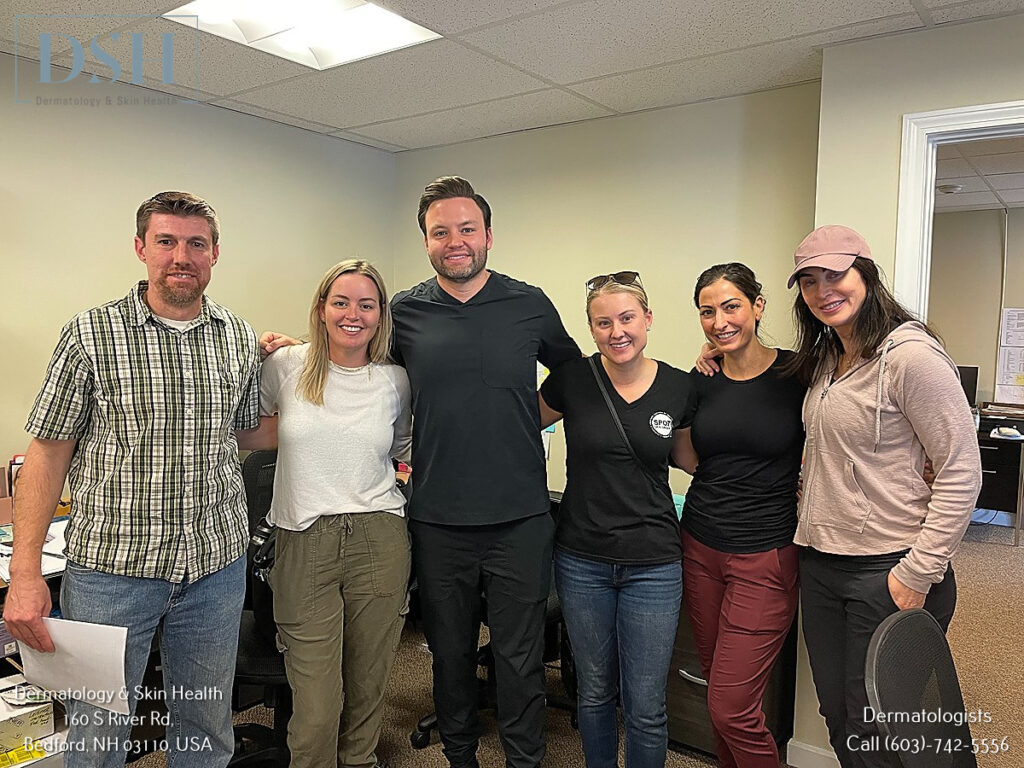

Basal cell carcinoma (BCC) is the most common form of skin cancer in the U.S. According to the Skin Cancer Foundation, more than 2 people die of skin cancer every hour. While BCC grows slowly and rarely spreads to other parts of the body, it can grow deep into tissues and bones if left untreated, causing damage and disfigurement.
The most effective treatment for BCC is Mohs surgery, a specialized technique that removes the entire tumor layer by layer while minimizing the amount of healthy tissue removed. But what happens if you don’t have this surgery to fully extract a BCC tumor?
At Dermatology and Skin Health, we want our patients to understand the consequences of delaying treatment for basal cell carcinoma. Putting off Mohs surgery can allow the cancer time to advance, recur after incomplete removal, and potentially lead to metastasis in very rare cases.
Our medical director Dr. Gary Mendese explains the risks and why prompt treatment is so important.
Take control of your skin health today - schedule a consultation with our expert dermatologists and start your journey towards effective treatment

Mohs micrographic surgery has the highest cure rate of all BCC treatments, as high as 99% for certain tumors. It involves progressively removing layers of tissue and examining them under a microscope during the procedure until no cancer cells remain. This allows complete removal of all roots and extensions of the tumor.
If a BCC is not fully extracted, whether due to patient delay or from another treatment, there are several possible negative outcomes:
Because BCC grows slowly, patients sometimes put off having it treated. But even though most cases don’t become life-threatening, delaying care allows destruction and complications to progress. It’s crucial to have BCC completely removed as soon as possible after diagnosis through Mohs surgery.
At Dermatology and Skin Health, Dr. Mendese performs Mohs surgery within just days or weeks after biopsy confirms BCC. This protects patients and prevents avoidable harm. Other facilities sometimes have long waiting lists, but delaying surgery even a few months provides a window for possible recurrence or spread.
Don’t take chances with your health - seek prompt BCC treatment
Many patients feel anxious about undergoing Mohs surgery. Understanding the step-by-step process can help ease some of this apprehension:
| Recovering After Mohs Surgery |
| 1. Mild pain, swelling, and bruising that typically resolves within 1-2 weeks with OTC pain relievers. |
| 2. Keeping the site clean and dry for proper healing and changing bandages as directed. |
| 3. Some restricted activity for 1-2 days to avoid re-bleeding from the surgical site. |
| 4. Potential temporary numbness around the wound as the local anesthetic wears off. |
| 5. Follow up appointment in 1-2 weeks to monitor healing and remove any stitches. |
| 6. Use sun protection diligently on the site for at least a year as it heals to avoid complications. |
| 7. The wound may leave a small scar, but precise Mohs removal minimizes disfigurement. |
Call the office if you experience excessive pain, bleeding, swelling, pus, fever or other signs of possible infection. Most patients recover well within two weeks.

While Mohs micrographic surgery is highly effective for treating most basal cell and squamous cell carcinomas, there are times it may not be the best option:
Take control of your skin health today - schedule a consultation with Dr. Mendese and start your journey towards effective treatment
Many patients have questions about Mohs surgery and what happens if they don’t undergo this specialized treatment for basal cell carcinoma. Here we provide answers to some frequently asked questions.
Mohs surgery, developed in the 1930s by Dr. Frederic Mohs, is a precise technique for removing certain skin cancers layer by layer. After each thin layer is taken out, it is immediately examined under a microscope to check for cancer cells at the margins. More layers are removed until no cancer remains. This allows complete removal while preserving healthy tissue.
For basal cell carcinoma, Mohs has the highest cure rate of all treatments, as high as 99% for some tumors. It helps remove the entire cancer while minimizing recurrence risk. Mohs is especially useful for BCCs in sensitive facial areas near the eyes, nose, and lips where precision is vital.
Getting Mohs surgery shortly after BCC diagnosis provides the following advantages:
Our team schedules Mohs surgery as soon as possible after diagnosis to ensure successful outcomes. Any delays could reduce the effectiveness of treatment and require more extensive surgery.
If circumstances cause your Mohs surgery to be delayed more than a month after skin biopsy, talk to your dermatologist. They may recommend techniques to help monitor the cancer in the interim:
While Mohs surgery should not be delayed indefinitely, these methods can provide some oversight if a short postponement is unavoidable. But remember, BCC will continue growing during any delay, so treatment should occur as soon as realistically possible.
Delaying treatment of basal cell carcinoma allows the cancer time to extend deeper and wider. Possible risks include:
While most untreated BCCs will not be fatal, postponing care allows avoidable local tissue damage. Our doctors recommend scheduled Mohs surgery within weeks of diagnosis for the best outcomes.

Dermatology and Skin Health provides unmatched expertise in skin cancer treatment. Dr. Gary Mendese has advanced fellowship training in Mohs surgery and performs over 2,000 cases annually, including treatment of complex facial tumors. If you’ve been diagnosed with basal cell carcinoma, we offer trusted care with prompt surgical options.
To schedule an appointment and learn about the advantages of our Top-Rated BCC Removal, contact Dermatology and Skin Health today. With multiple New Hampshire and Massachusetts locations, we provide compassionate care and the most successful approaches.
Don’t delay - call us now to start treatment within weeks. Your skin health is our priority.
DOVER - (603) 742-5556
NEWINGTON - (603) 742-5556
PEABODY - (978) 525-0100
LONDONDERRY - (603) 742-5556
BEDFORD - (603) 742-5556
If your desired appointment type or preferred provider is unavailable online, kindly call (978) 525-0100 for Peabody, MA and (603) 742-5556 for all New Hampshire locations. Alternatively please feel free to send us your request via the patient portal, or via email at info@dermskinhealth.com
*For medical dermatology appointments in MA please dial (978) 525-0100 or fill out the appointment request form above.